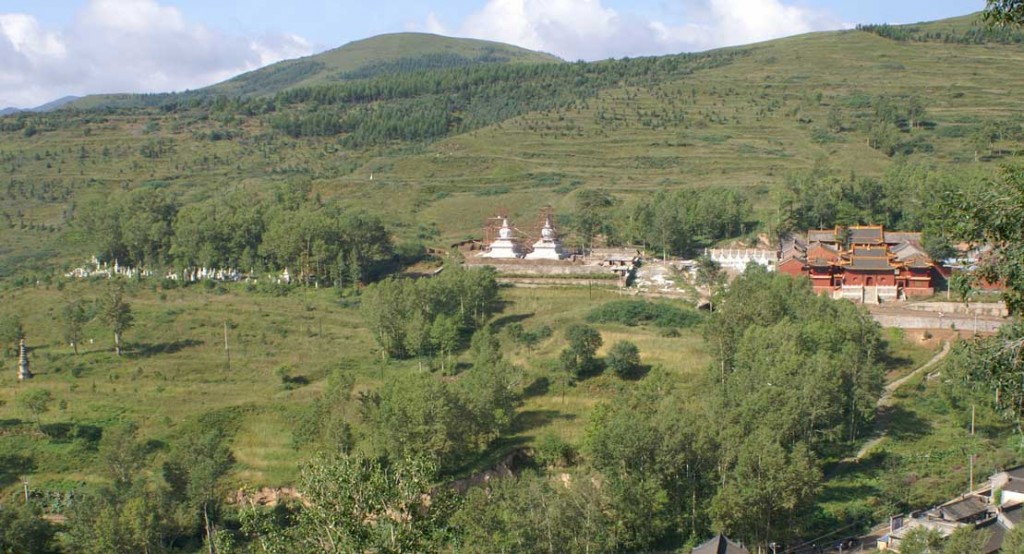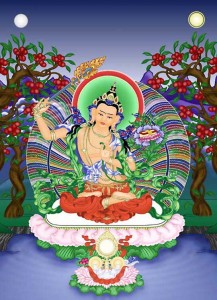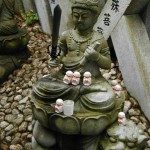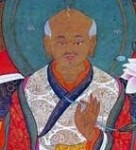Manjushri (Wen-shu Pu-sa), the Bodhisattva of Wisdom, manifests from time to time to teach living beings. He is actually an ancient Buddha who is also known as the guru or teacher of seven Buddhas and is sometimes depicted as wielding a sword of wisdom that cuts through illusion. His bodhimanda is Wu Tai Mountain, one of the four sacred mountains in China. His name means “Wonderful Virtue” or “Wonderful Auspiciousness.” He is the foremost in the universe when it comes to wisdom. He was the only disciple of Shakyamuni Buddha that the Buddha could get to visit Venerable Vimalakirti when the great Venerable one was ill.

Wu-tai Shan Temple on Wu-tai Mountain, one of the four most sacred mountains in China and the site of the Vajra Throne for Manjurshri
Je Tsongkhapa, Sakya Pandita, and Longchenpa were all considered Tibetan manifestations of Manjushri.
When he was twelve years old, Sachen Kunga Nyingpo (1092-1158), the First Patriarach of the Sakya Tradition, spent six months doing the practice of Arya Manjushri, and as a result, on one occasion he had a direct vision of the deity. The glorious Manjughosha, orange in color, was surrounded by a mass of brilliant light and seated resplendently upon a jeweled throne. He was displaying the mudra of teaching the Dharma, and was flanked on either side by two bodhisattvas. He spoke the following words:
If you are attached to this life, you are not a true spiritual practitioner.
If you are attached to samsara, you do not have renunciation.
If you are attached to your own self-interest, you have no bodhichitta.
If there is grasping, you do not have the View.
Reflecting on the meaning of this statement, Kunga Nyingpo realized that this mind training of “parting from the four attachments” incorporates all the exoteric and esoteric practices of the path of the transcendent perfections, and he felt an extraordinary confidence in all the teachings of the Dharma.
Master Chogye Trichen Rinpoche (1920-2007), wrote a commentary on Sachen Kunga Nyingpo’s youngest son Jetsun Drakpa Gyaltsen’s Song of Experience on Mind Training and the View based on this teaching by Manjushri Bodhisattva. Jetsun Drakpa was the third patriarch in the Sakya tradition.
Manjushri (Wen-shu Pu-sa) Bodhisattva’s birthday is celebrated on or near the fourth day of the fourth lunar month each year.



